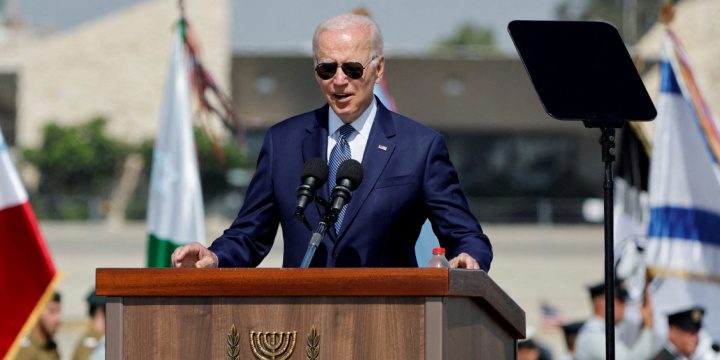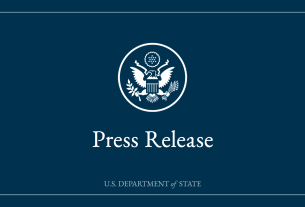As the final months of President Joe Biden’s term approach, one question continues to loom over the White House: Will the president pardon his son, Hunter Biden? White House press secretary Karine Jean-Pierre reiterated on Thursday that President Biden has no plans to offer a pardon to his son, who has faced an ongoing federal investigation into his business dealings, tax payments, and other legal issues. While the president has consistently denied any wrongdoing in relation to his son’s actions, the case raises a broader question about the intersection of power, politics, and justice.
The Political and Legal Context
Hunter Biden’s legal troubles began to attract national attention following the revelation of a federal investigation into his financial dealings. The scrutiny intensified after the release of his laptop’s contents, which allegedly contained documents and communications related to his business ventures in Ukraine, China, and elsewhere. While no formal charges have been brought, Hunter Biden’s legal situation is emblematic of a larger political dynamic—he is the son of the sitting president, a factor that inevitably places him under greater scrutiny than ordinary citizens.
At the heart of the debate is whether Hunter Biden would even be the subject of such a high-profile investigation were his father not in the White House. For many, this question highlights an inherent tension between political power and individual accountability. Given the heightened visibility due to his father’s position, some argue that Hunter Biden’s case deserves a different kind of consideration—one where the potential for bias, political motivations, and personal suffering comes into play.
The Case for a Presidential Pardon
A presidential pardon, as outlined by the U.S. Constitution, grants the president the power to forgive federal crimes, effectively absolving the individual from punishment or legal consequences. While presidential pardons are typically associated with high-profile cases, such as the pardons granted to former presidents’ allies or individuals who served time in prison, the notion of a pardon for Hunter Biden is contentious.
Yet, there is a compelling argument in favor of such a pardon. One of the primary reasons centers on the idea of fairness and equity in the legal process. Hunter Biden’s actions have been heavily scrutinized, partly because of his connection to his father. Critics of the investigation point out that the media coverage and political fallout around the case seem disproportionate to the nature of the alleged offenses. The fact that Hunter Biden is the son of a sitting president undeniably affects both the tone and the scope of the investigation.
Additionally, while Hunter Biden has faced legal scrutiny, the fact remains that many individuals involved in similar financial or business dealings have not faced the same level of public exposure or criminal inquiry. By granting a pardon, President Biden could potentially bring closure to the case, especially if the investigations have become politically charged, rather than strictly criminal.
The Role of Politics in Justice
The question of whether President Biden should pardon his son also brings up broader concerns about the politicization of justice. In theory, the law should be applied equally, regardless of a person’s familial connections or political status. In practice, however, legal cases involving high-profile individuals often become entangled in political narratives. For Hunter Biden, the combination of his father’s political position and the legal scrutiny surrounding his actions creates a scenario in which some argue the law could be seen as selectively applied.
If President Biden were to issue a pardon, it could be interpreted as a political move to shield his son from ongoing legal pressure. On the other hand, it could also be viewed as an act of compassion—a way to mitigate what many see as an undue burden on someone who may have been thrust into the public eye because of his father’s political career.
Critics of a potential pardon argue that it would undermine the integrity of the justice system, potentially setting a dangerous precedent for future presidential interventions in legal matters. However, others contend that the system’s bias towards powerful political families is itself a form of injustice, and that a pardon might help correct the imbalance created by the public’s focus on Hunter Biden’s status as the president’s son.
Legal and Ethical Considerations
From a legal perspective, President Biden is within his rights to issue a pardon to his son, assuming any federal crimes are involved. There is a longstanding tradition of presidents issuing pardons for a variety of reasons, including mercy, fairness, or the belief that justice has already been served. If Hunter Biden is eventually charged with federal crimes, the president could choose to intervene as part of his broader executive powers.
However, ethical questions abound. Would a pardon send the wrong message about accountability? Would it further entrench the perception of a two-tiered justice system—one for the politically connected and another for ordinary citizens? Alternatively, would it provide Hunter Biden with a fair opportunity to move forward from a case that many feel was driven by political motivations?
Conclusion: A Complicated Decision
As President Biden prepares for his final months in office, the decision of whether to pardon his son remains a complicated one. On the one hand, granting a pardon could be seen as a necessary act of fairness, helping to end a politically charged and divisive saga. On the other hand, such a decision could reinforce concerns about the politicization of the justice system and the power of presidential influence over legal matters.
Ultimately, the decision lies with President Biden, who must weigh the potential consequences of such a move on both his legacy and the public’s trust in the impartiality of the justice system. While the question remains unresolved, it reflects the ongoing tension between political power, individual rights, and the pursuit of justice in America.
The answer to this question if asked is a resounding Yes!



